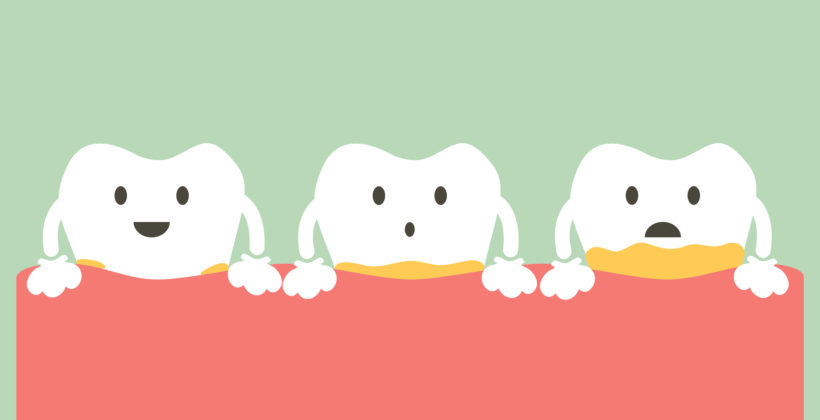Bad oral hygiene habits, eating too much sugar, hormonal changes, medications, and some medical conditions can make a person more susceptible to developing periodontal disease, also called gum disease. In each of these circumstances, the balance of good and bad bacteria is thrown off and the gums are attacked.
When gum disease progresses, it can infiltrate the bloodstream and cause serious overall health issues. Periodontal disease has been linked to various systematic diseases like diabetes, rheumatoid arthritis, respiratory disease, stroke, and dementia.
The best way to determine if you have gum disease is to visit your dentist. Many times, the symptoms of gum disease don’t arise until the advanced stage called periodontitis. By that time, patients often lose their teeth or undergo extensive and costly treatments.
If you have periodontal disease, you may be experiencing one or more of these five symptoms:
1. Red, swollen gums
Irritated gums are one of the first signs of periodontal disease. This occurs when tartar builds up on the teeth and produces toxins that aggravate the gums. If the swelling lasts more than a few days, contact your dentist to schedule an exam.
Other causes of swollen gums include:
- Switching oral care products
- New medication
- Poor nutrition
- Food stuck between teeth
Your dentist will rule out any of these problems before determining whether you have gum disease.
2. Bleeding after brushing or flossing
The first stage of gum disease is called gingivitis. Most people have heard of this stage of gum disease in commercials—it’s referred to as “a little pink in the sink.” Bleeding gums don’t always mean you have gingivitis. Usually, when someone goes a long time without flossing, and then flosses, their gums will bleed. Brushing too hard and hormonal changes may also lead to bleeding gums.
If none of these other issues are relevant, you most likely have gingivitis. The good news is your dentist can reverse these effects if you visit in time. If you continue to maintain good oral hygiene habits at home and attend regular dental cleanings, your mouth should restore itself back to health!
3. Bad breath
If you’re struggling with bad breath, try rinsing with an antibacterial mouthwash and avoid foods like onion and garlic for a little while. If the cause isn’t periodontal disease, your dentist may recommend a dental cleaning.
Gum disease creates pockets in the gums where odor-causing bacteria reside. These could be the source of the odor. In this case, your dentist will perform scaling and root planing to clean out those pockets.
4. Longer teeth
As periodontal disease progresses, your teeth may begin to look longer. This is because the pockets of bacteria deepen and cause the gums to pull away from your teeth. Receding gums expose more of your teeth which can lead to painful dental sensitivity.
If you think your teeth look longer, contact your dentist immediately to avoid more serious oral health problems.
5. Changes in the way your teeth fit together
One of the first signs of advanced periodontal disease, or periodontitis, is moving teeth. Your teeth become weak when the gums pull away and have less structure to keep them in place. Therefore, your top and bottom teeth may not perfectly align when you close your mouth.
Visit Your Dentist Today
Those experiencing any of these symptoms should schedule an appointment with their dentist immediately. Gum disease requires urgent professional intervention to avoid serious oral and overall health issues.
Our dentist, Dr. Julie Glud, offers effective periodontal therapy to prevent, diagnose, and treat periodontal disease. Contact our friendly dental team today at (630) 629-5700 to schedule an appointment.

